Cord Blood Registry (CBR)
Cord Blood Registry (CBR) is a private bank that offers collection and long-term storage of both cord blood and cord tissue. With more than 700,000 stored units, CBR is one of the largest of the cord blood banks.
At the University of Arizona School of Medicine, Dr. David Harris helped form the first cord blood banking program through partial sponsorship of the American Cancer Society, collecting, processing and storing the first umbilical cord blood stem cells, those of his son, for Cryo-Cell International in 1992. In February 1995, Tom Moore incorporated Cord Blood Registry in the state of California and formed a partnership with Dr. Harris and the lab at the University of Arizona for the processing and storage of cord blood for his new company, CBR Systems, Inc.
In September 2012, the private equity firm GTCR acquired CBR. Geoff Crouse joined CBR as the new CEO, and founder Tom Moore then stayed on as CBR’s executive chairman. In August 2015, GTCR sold CBR to AMAG Pharmaceuticals, and Todd Van Horn became the company’s General Manager. In June 2018, AMAG Pharmaceuticals sold CBR to another private equity firm, GI Partners, and Peter Bawin became the brand’s general manager.
GI Partners had simultaneously acquired California Cryobank and merged Cord Blood Registry with California Cryobank’s FamilyCord brand under the Cord Blood Registry name.
Fast Facts
- CBR has 700,000+ stem cell units currently in storage, making it one of the largest of the private banks
- It has stored cord blood for more than 300 families who have used their stem cells in treatment
- CBR has sponsored a clinical trial on acquired hearing loss and its clients have participated in a number of FDA-regulated clinical trials
- FamilyCord’s parent company had acquired CorCell and LifeLine Cryogenics before being merged with CBR, ipso facto CorCell’s and LifeLine’s former clients are now clients of Cord Blood Registry
- Through its merger with FamilyCord, Cord Blood Registry gained new partners in South America, broadening its reach to select international markets
Collection, Transport, and Storage
CBR’s collection kit has been designed to offer 1 hour of protection from extreme hot and cold temperatures. CBR uses a courier to expedite transport.
In the bag it provides for collecting cord blood, Cord Blood Registry uses the anticoagulant dry heparin, opposed to citrate-based anticoagulants like most of the industry. Heparin is not recommended by the FDA like citrate-based anticoagulants.
CBR adopted the AutoExpress (AXP) automated processing method in 2006. AXP reduces the chance of human error and provides consistent results in the reduction of certain blood components. It also provides quick and accurate data tracking. Cord Blood Registry is the only private cord blood bank to have adopted the AXP processing method. When it was first introduced, AXP was touted by CBR as recovering a median of 99% of a collection’s mononuclear cells (MNCs). In an independent, third-party study, AXP recovered 76% of stem cells.
CBR cryopreserves cord blood in a two-chamber bag. Much of the industry has moved toward 5-chamber bags because of its potential future use in multiple treatment options.
Pricing
Advertised prices may not contain current promotions. The storage fee for CBR’s annual plans are not fixed and are subject to change.
- Cord blood processing (testing and first year of storage included) — $1,675
- Cord tissue processing (testing and first year of storage included) — $1,470
- Annual storage fee — $175
- 18-year package — $3,995
Licensure and accreditations
Cord Blood Registry is registered with the FDA (U.S. Food and Drug Administration) and accredited by the AABB (American Association of Blood Banks).
The full list follows:
- FDA-registered
- cGMP- and cGTP-compliant
- Licensed in California, Maryland, New Jersey and New York
- AABB-accredited
Contact Info
Address:
1200 Bayhill Drive, 3rd Floor
San Bruno, CA 94066
United States
Phone Numbers:
888-CORDBLOOD
Office: 650–635–1420
Email:
services_questions@cordblood.com
treatment_questions@cordblood.com

